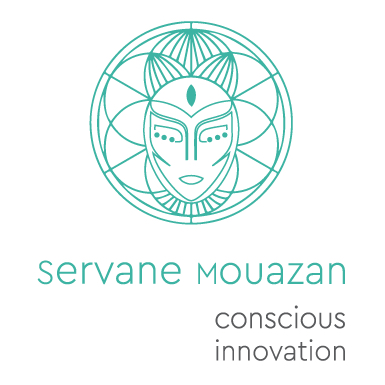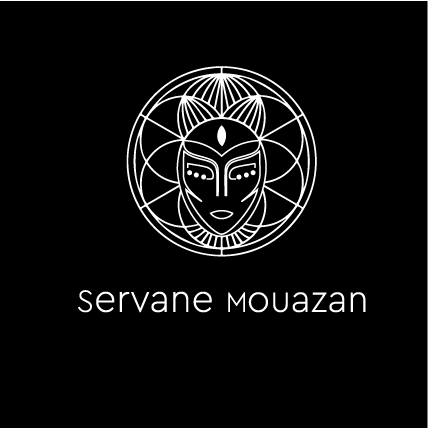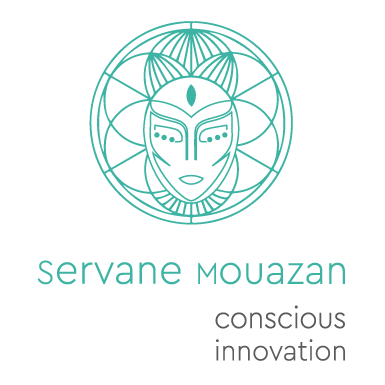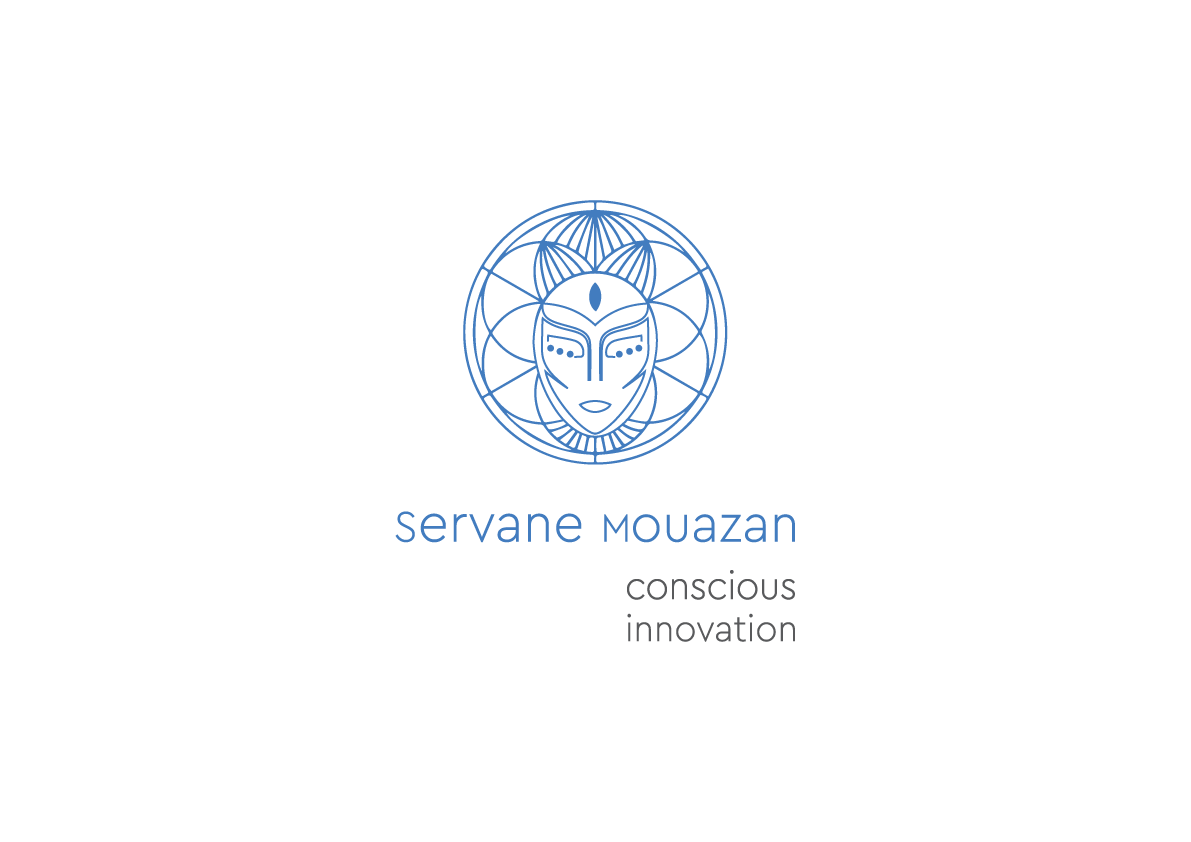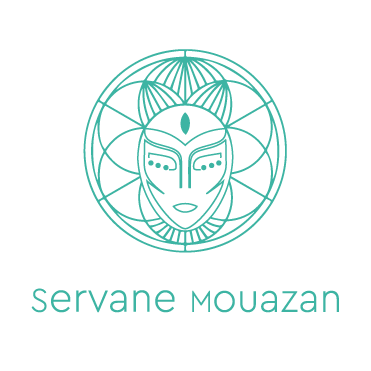The Three Pockets You Need To Move Money For Good with Leonardo Letelier
In this episode of The House of Trust podcast, I am listening to Leonardo Letelier, founder and CEO of Sitawi, Finanças do Bem; Executive Director at Endowments do Brazil; and also the co-founder of the Movement for a Donation Culture in Brazil, (Movimiento Para Uma Cultura de Doação”).
Leonardo shares Sitawi’s founding journey and how he pioneered impact investing in Brazil. We reflect on the importance of understanding the social sector beyond its impact, the need for philanthropy and blended finance in creating a better world, and the three “pockets” or – thinking streams- needed to move money for good.
Highlights in this episode:
(3:43) A Happy Hectic Social Finance Entrepreneur
(7:48) Sitawi, Pioneering Impact Investing in Brazil
(11:41) Everybody an Impact Investor
(20:22) Tending for the Social Sector: 3 times larger than car manufacturing,
(24:41) Putting Consumption, Investment, and Donations in 3 different pockets.
Useful Links
Connect with Leonardo Letelier on Linkedin: https://www.linkedin.com/in/lletelier/
Sitawi: https://www.sitawi.net
Endowments do Brazil: https://info.sitawi.net/sitawi-fundos-patrimoniais
Sign up for our Conscious Innovation Updates: http://eepurl.com/hp0h55
{{footer}}
Transcript
Servane Mouazan 0:02
Welcome to the House of Trust. My name is Servane Mouazan and in every episode My aim is to be a thinking environment with an inspiring leader who loves to invest in social and environmental change. Together we take the time to be and the attitudes, the thoughts, the feelings that you need to ignite and grow a positive social and environmental impact and sometimes we travel in the future and come back equipped with artefacts and insights that help us do a better job and I'll also invite you to think alone. Today my guest is Leonardo Letelier the CEO and founder of Sitawi finance for good, heis basedin Rio Brazil. He's also the co founder and managing director of endowments do Brasil Endowments Of Brazil. A specialist in impact investing ESG and strategic philanthropy. Leonardo has been mobilising capital for positive social and environmental impact since 2008. I had the pleasure to discover Leonardo's work and impressive network when I was running the women's social Leadership Awards back then, and he put forward superb candidates a women leading social enterprises now today I'm curious to learn from Leonardo about his learnings around navigating change the insights you might have gathered from you know, watching green funds on the map out to make philanthropy more strategic more future thinking more relevant and less reactive in the wake of tragic events. And also where he gets its inspiration from.
Bom Dia, Seja Bemvindo Leonardo Hello and welcome.
Leonardo Letelier 1:54
Thank you for the invitation the van it was always a pleasure to reconnect and share a bit of the stories of this 13 year long journey.
Servane Mouazan 2:05
Wonderful. How are you arriving today? What's your state of mind?
Leonardo Letelier 2:12
I am I'm happy but living in a hectic time of my life because I'm going to spend a year in London.
So I have about a month to prepare everything for the move. Some of it is already taken care of. But there's a lot of things especially bureaucracy that lies ahead. And at least I am on the On the work front. I'll continue to work with Sitawi and Endowments do Brazil, because actually I'm going as a plus one as a dependent of my wife is getting her master's in museum studies in in the UK. Oh this time. Wow. I am I am the Companion and many years ago about when she three years ago. She was the one who joined me for my MBA with us. So I'm basically returning the favour.
Servane Mouazan 3:03
Wow, see anything can happen even decades afterwards. Wonderful. Yes. So you are arriving as a hectic but happy companion.
Keonardo Letelier
Correct. That's a good that's a good summary.
Servane Mouazan
Okay, we'll play with that. So apart from being a happy and hectic companion, can you tell us who you are in five words max? What do we need to know about you in five words?
Leonardo Letelier 3:28
That's that's the hard one.
I'll tell i am a Social Finance Entrepreneur, social finance. That's that's three words. Yeah.
Servane Mouazan 3:37
Can you give us two more? Social Finance Entrepreneur
Leonardo Letelier 3:43
Happy, hectic social finance entrepreneur.
Servane Mouazan 3:45
Love this love this so we just talked about you come in and join us in in the UK. We'll come back to that in a moment. But in the past you worked for a large corporate consulting firm. From an early age you travel a lot you lived in different countries you familiar to change. In fact, you say you made change your comfort zone, so what is your process for making change comfortable, for you?
Leonardo Letelier 4:16
I have no idea. That's just something that's innate in me, my board. Every time I say well, we have some innovation here one that we want to try out or test or this or that. They say, Well, surprise, surprise, another innovation. Right. So apparently, it's dawned on me that I like to change and innovate and it's a natural thing.
Not necessarily that that makes me any better or worse than anybody else. It's just that change the game.
Servane Mouazan 4:50
So you love to innovate, you love to change, you love to bring new things out. And in fact, that's a really good link to Sitawi. So it means flourish and develop in Swahili. So what is the story? Tell us more?
Leonardo Letelier 5:06
I'll Start by telling you the story about the name. After my MBA in the US. I had a couple of months to travel before going back to work for this large consulting firm that we mentioned. And we decided to go to Africa and we climbed the highest peak in Africa, which is Kilimanjaro. Kilimanjaro is is the mountain that is in the border of Kenya and Tanzania.
And they speak Swahili there. Yeah. So I said to myself, Well, whenever I start something and adventure and organisation, I'll name it in Swahili. And then I forgot. And the first name when I bought some, some, I don't know like, 6 years later, I was starting to tell him and it was not called to tell you back then. And I looked, I was looking for a name and I settled on NP Converge. Okay, and nonprofit converge. I thought it was the greatest thing ever.
I'm an engineer by training. So really, there was pretty much the best I could. And then I was talking to a friend and he ran a VC firm in Brazil. He runs and he was telling me about one of his portfolio companies. It was called equa and equa is one of the 52 shades of white that the Inuit can describe.
Okay, I don't know if that's true. But the message I got was that NP converge sucked as a name.
And so I remember the story of the Kilimanjaro and thought, Okay, I'll look for something, something a little bit more inspiring in Swahili. And when I came to Sitawi, I thought it encapsulated two different trends or two different strands that I was trying to join, which is one more business finance, and the other was more like social. People right? And the translations I found for sitawi were how to flourish, which is a very visual, nice visual for something that is growing and develop, which is something much more engineering like, and it combined both, excellent. I found the word to describe what it was trying to do.
Servane Mouazan 7:37
From then on that you had the name you have the concept and what what became the major highlights of Sitwai and its social finance work.
Leonardo Letelier 7:48
We were one of the pioneers in impact investing. So actually, I was talking with Anthony Bug Levine who used to be at Rockefeller and then on rocket Finance Fund now. Now he's doing something else. And he told me that the term impact investing was coined in one of Rockefellers meetings in Italy in their retreat in the larger and I was looking at the calendar I said, Oh, I started talking before that was very, very intriguing.
Back then, it was not called Impact investing. Or it was we were doing loans. It was social sustainable loans. That was the name we gave it. Right. All right. You can see a trend. I'm very bad at naming stuff, but okay.
And we started making loans to nonprofit coops and for profit or for impact businesses. Right. And this was born out of the experience I had before volunteering for a nonprofit, the head of small business arm if you will, but it was very poorly funded. So basically, it was if there was any donation left and it will go to the business and the business will turn in it's more money but with a with a time lag. That made it very hard for them to manage the process. And I thought well, but they need something that is very, very common in the business world. It's called working capital. You go to bank for a loan, and then when you're calling with Fazio stays at 90 120 days later, you got to repay the bank.
Not the most radical shift paradigm for finance, but for the nonprofit world back then. In Brazil, it was What do you mean I can take a loan I cannot take a loan loans are bad.
Unknown Speaker 9:39
Right? That is, especially in Brazil with very high inflation and interest rates. I understand what where that comes from.
Servane Mouazan 9:45
Yeah, the context was very, very important to reset there.
Leonardo Letelier 9:48
Yeah, yeah. But loans are tools so you can use it correctly. Or incorrectly. It's gonna be good a bit. So I thought, well, there's nobody funding nobody financing actually lending to this part of the nonprofit ventures.
I can do that. I know a little bit about business about finance. I can put something up and we lend to them. But I I'm really lending for the impact of non lending because they are nonprofits. That is where the say the market opportunity comes from. But what I want to do is lend for impact so we never limited our clients to the nonprofit sector. We said, well, if you're working to create impact, and you have a business proposition that business is already running, then can be better served with a loan with adequate interest rates. Then we'll do that so that's how we started over time. That became a crowd lending platform.
And so before I was asking for grants for sit down and then sit, I would go were turned around and lend it to these organisations. When the money came back with lend it again and again and again. And now, really, anybody with the checking account in Brazil can learn from 10 Hi, so that's $2 and up to the organisation that we source we originate, evaluate, perform due diligence, and then we support for the time of the loan. There's two three years work and for that we still need subsidies. But now that the philanthropic capital we raised is basically to support the team doing this rather than to be lent to the organisation right so individuals can start an impact investing portfolio with $2
Servane Mouazan:Everyone in the investor Happy Days.
Leonardo Letelier:Exactly. Everyone in the investment in this case most their 99% loans, we've done some convertible and other stuff, but they're not on the platform. The platform is a regulated financial institution so that it has to be within some some boundaries. But yes, everybody and everybody an impact investor,
Servane Mouazan:wonderful. I see puts a smile on your face so that's something like it's a recipe that works for you right? I wonder Leonardo what more helps you and your work flourish.
Leonardo Letelier:I am clearly motivated by doing new and different stuff. So what I just described, which was 100% of our way back then now it's one of the four things over time we also created a philanthropy management service, if you will. It's a mix of donor advised funds with fiscal sponsorship, ties and cash all merged into one. So this has enabled Congress stuff to happen or to happen easier than it would otherwise. So there this mall or sometimes not that small but a collective of people want to do good, but they don't want to create an organisation and take care of the organisation and discuss what's going to be the annual raise with the union to create good, they just want to create. So we've been hosting incubating, if you will. This initiative, and sometimes they're more community led. And sometimes they're more corporate led that allows funds to flow for impact much faster and easier than otherwise. And during the pandemic. This was instrumental we mobilised some 200 million highs or COVID in the past few years, because people wanted to move very fast, but also with high level of compliance and people with great certainty of how the funds were going to be cared for and spent. So they needed such a solution from somebody like us that has a established reputation team and all that. So we ended up creating 14 Different we call them philanthropic funds.
Just for COVID in Brazil.
Today, we've done some wighty and we have come 50 active in many, many different causes from help as we spoke to education to democracy.
Servane Mouazan:I'm picking up a few things here. There was them making life simpler in Brazil, considering the red tape that CAN TAKE PLACE sometimes in the country, it's already victory.
And I'm hearing as well that during COVID There was this sort of flux of philanthropic donations.
Leonardo Letelier:And my sense of philanthropy in Brazil is that it's very, there's a lot of solidarity, not necessarily a lot of flux What do I mean by that?
Whenever there's a flood or a problem like an emergency, people mobilise and give that some money as well, but mostly stuff so blankets or food or this or that. The country is very good at mobilising for that and then two weeks later, the problem is still there, but people have stopped giving. So there's not there's much less except for the church regularity.
Currents in giving. So it's something a little bit more. Let's not even call it strategic, but at least more more thought through and there's a lot more reaction to emergencies.
It's so much so that now that COVID is gone. Pretty much philanthropy has receded significantly.
So I think they're the positive legacy in general, but I think is much smaller than then I wished or is well, the way we've worked in Brazil in philanthropy is still very much reacting to emergencies rather than planning for prevention if you will.
Servane Mouazan:So what is promised, the promising seed that you want to see flourish here around philanthropy.
Leonardo Letelier:There's something going on right now, which is the return of Brazil to the international scene and the importance of the Amazon within that context, right. So another thing we do, we have impact investing, we have land management, we have an area that we just renamed as climate and conservation planning.
This started and we still run with a local development programme in the Amazon in the mijurua region, which is right in the middle of the jungle.
And as any development programme that's worth its name. It has several components from education, empowering women, youth support for value chain or co ops, and all that. So we started doing this development programme in the region and it took us a while to pivot. The idea behind it in the sense of if you look at the two areas that I mentioned before impact investing and philanthropy management, it's much more around the financial mechanism or the flow of the money then designing and running a programme there. Are many organisations that can do that. We did it as well, we do it, but our distinctive ability doesn't lay there.
So we switch the focus from local development programmes or territorial development programme to financial mechanisms and the development programme can be one of the avenues for putting the money in the ground. But it's not necessarily the only one. So for instance, payment for Environmental Services is something else that we can do under the head.
And it's something that we already do in Brazil but it took us a while to rethink what we were doing in light of what our distinct abilities are.
And in that sense, going back to your question, the Brazil is back and the Amazon is back.
With the new government different from the old government, the current government likes international participation in solving the problems of the country. And I'm sure we're gonna see, given the amount of interest of the importance of the Amazon and the amount of interest that is filed all over the globe. I'm sure we're going to see much more funds flowing through the region with give us an opportunity to deliver on our mission of repurposing the capital for social environment impact.
Servane Mouazan:and that counts as well for philanthropy. Do you think you can revitalise the attitudes of donors to react less or be more strategic, what are your thoughts?
Leonardo Letelier:That's something that's more on my agenda than on Sitawi's agenda, if you will. Of course it probably benefits from more vibrant philanthopric scene, but the type of skills and connections needed for that are not necessarily the ones we have. From a personal standpoint. I am a part and one of the co-founders of the movement for donations, called "Movimiento para uma Cultura de Doaçoes" in Brazil. And we are doing several initiatives on this front of a large scale, behavioural change. We're small, but we have big ambitions.
Now those two things connect in a specific point, which is the social sector is usually seen only as the impact it generates, which is not wrong, but it's not enough. What do I mean by that? When I say social sector, everybody will think well, trees planted kids that are in after-school programmes health interventions, all that and all that happens and all that is good. But nobody's thinking 4.27% of GDP, 6 million people hired by the sector, which is a huge contribution for the economy.
This is about the size a little bit smaller than agriculture in Brazil. This is larger than car manufacturing, much lighter about three times as largest car manufacturing. So it's a massively important sector for the economy, but it's regulated only with those images in mind. As in the kids and the trees.
Servane Mouazan:The charity image, the traditional charity images.
Leonardo Letelier:Yeah, exactly.
Servane Mouazan:It sounds like we need a different register. Different vocabulary.
Leonardo Letelier:Yes. That includes both things.
So I don't know if you know this, but there was a study conducted in I think 84 different countries and only three countries had a tax on donations to nonprofits. It was South Korea, Croatia and Brazil.
Servane Mouazan:Wow. Okay.
Leonardo Letelier:It doesn't make any sense at all.
In Brazil, actually, the law that currently governs donations and inheritance is the same one. The state tax and donation tax is the same. It doesn't again doesn't make any sense. One thing is for private good, yeah, there's no public good. Right. Now we're changing this. We did a study on that these numbers 4.27% of GDP. This is a something that has been bugging me for 15 years, when I joined the sector that okay, we need to know how large or how important is the sector in terms of percent of GDP, and there was no no available figure. So after 15 years, asking people if they knew what the number was or if there was any research, basically, we commissioned the research from the Economics Institute in the University of Kampala, so very traditional, well reputed with a traditional methodology. So we could go back to policymakers and say, Look, this is not the latest fad on how to count happiness. This is actual, hard economic data. 4.27% of GDP. So at least listen to us. Anytime you're thinking of passing a law that either directly or indirectly hits that, talk to us!
We want a seat at the table. And we're getting heard from the positive and the negative. There's a tax reform going on in Congress and they scrapped at least for now, the tax on donations. So it's a long process, it goes from the house to the Senate and possibly back to the house. So, so that is that is a positive side of a advocacy that is rooted on something that we are distinctive, right? There are not tonnes of nonprofits that are focused on finance in the social sector. So that is on the positive side. On the negative side. There is a there is a legislative inquiry commission - CPL - in Portuguese going on in Brazil, targeting nonprofits that work in the Amazon, basically calling them agents of foreign agents if we will, right, and trying to outlaw their activities. And we were called actually, I was invited not to be deposed there but to provide information based on this research that we commissioned. Okay. So beware what you wish for. You want to be better known for being one of the very few organisations have a complete view or more business finance view of the sector? Yes, we got known for that.
And now, we're both reaping the benefits and paying the price.
Servane Mouazan:Brazil like many other countries is going through a lot of political turmoils. And for someone who navigates this type of context, you know, someone who's mobilising capital for good. Navigating this type of context is not an easy feat. So what would you suggest all the colleagues should be prepared for knowing that in other countries we still have to go through the turmoil and what would you advise them to be prepared for as investors?
Leonardo Letelier:So I, I like to put different things in different boxes so to do the type of work that we need to do or that we want to do in Brazil, which is really promote, fund invest in these organisations that are at the fringe of the market very much at the fringe. You'll need subsidy for some time and maybe for some of these organisations if you want that public benefits. You'll need subsidy for a loan.
So we need investments both in the form of returnable capital and in the form of collateral.
Leonardo Letelier:I'm very concerned when people are talking and probably people are new to the sector, and describing impact investing as a way to supplant philanthropy. That's not going to happen even for indexing that things will be born in for a lot of stuff that's impact investing today, you'll need philanthropy. Plus, there's probably enough stuff in the world that we want as a society and that we need that has to be funded by philanthropy or taxes one way or the other. You're not going to get your money back.
So, for me, the most important thing is that people think with different pockets, if you think that money can be used for consumption, investment, or donation, right. Don't think with only one of those funds, fund consumption, which is something for your own good today. Think on how, who you're going to buy from what is the social environmental practices of this, organisation and so on and so on, with investment which is money for you in the future?
Same thing, what are you investing in what type of world they are pushing forward? Rather than invest blindly and put it in a fund and delegate to a fund managers?
Never having the conversation of what do you want your money to fund or not? Life is not just about return.
Leonardo Letelier:Most of our decisions in life are not about return. Otherwise people would not get married for instance, right?! From a financial standpoint, I think I thought that he that is less efficient, getting married, people wouldn't have kids. A kid is a massively expensive venture. But why do we still do it?
Because we don't live our life just based on the financial outcome.
It's a mix of things. Yes, you have to pay your bills at the end of the month. But that's not all that is there. And in donation, which is money for others. So money for you today. Consumption money for you tomorrow, investment, donation money for others.
Again, what world are you creating with your donations, and you can combine them but don't use investment when you should be using donation and donations when you should be consuming and consumption monies.
Servane Mouazan:And it might be sometimes they're a bit blurry for some
Leonardo Letelier:Yeah, I understand and we don't make it easier because we a lot of what we do is blended finance. So it requires people to have this clarity of vision. So invest in something that is good for the world, and maybe gives you a little bit a little bit lower return rather than in something that you hate. And you're basically creating a world that you hate.
Servane Mouazan:Now you're about to join us in London for a year. What are you looking for? And I know that you're going to be a companion that's so so so it's a graceful thing to be, but what would success look like at the end of that year in London for you?
Leonardo Letelier:Somebody made me the same question yesterday and I said look right now success means finishing the packing, getting the visa, renting a place enrolling my kid in school. So if I managed to do all that, then it's already been successful. That's probably what August September would look like. And then there's a list of people that I want to meet and have this type of conversations with them. And I still have to do the list of things I want to learn but possibly one of those. One of those is is artificial intelligence.
Very curious on how that can be harnessed for good rather than them for evil,
Servane Mouazan:or disaster. Yeah. So what an amazing set of insights to share with us and around blended finance and mobilising capital for good and in, in complex surroundings and political turmoil and really, how to get clarity in how you invest. Donate for now, in the future. And I love these takeaways. Thank you, Leonardo.
Leonardo Letelier Thank you. Thank you for having me.
Servane Mouazan
Thank you everybody, for listening. So that's it for today. The whole podcast series is available to listen to anywhere you love to find your podcasts and it's completely free. So typing these things in the house of trust, share the love, subscribe, leave a review, and for more conscious innovation insights events and wayfinding resources if you are someone who loves to invest in social and environmental change check my website, servanemouazan.co.uk and subscribe to the monthly updates. I can't wait to connect. And see you next time in the lounge of the House of Trust. Keep learning, keep connecting.
Bye Bye
